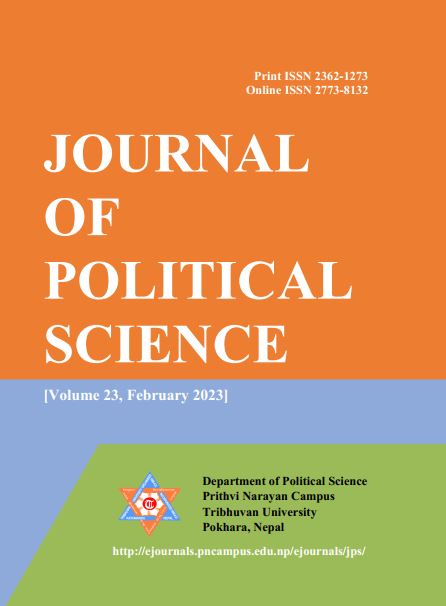Performance of Anti-Corruption Agencies in Nepal: A Good Governance Perspective
DOI:
https://doi.org/10.3126/jps.v23i1.52283Keywords:
Nepal, corruption, ACA's, CIAA, institutionalismAbstract
Several anti-corruption laws and dozens of Agencies including the Commission for Investigation of Abuse of Authority (CIAA) have been working against corruption in Nepal. The current constitution has empowered the CIAA as a supreme body for fighting corruption. Nevertheless, the anti-corruption movement is not well enough. Scholars argue that only the establishment of Anti-Corruption Agencies (ACA) cannot assure the cure and substitute for a high level of corruption. Rather, a strong political will, by various means play a key role; for example, by means of the allocation of sufficient personnel and the budget. Others argue that ACA must also be free from political interference and ACA must also be out of fear and favor in investigating political leaders and senior civil servants. Using empirical evidence derived from unstructured interviews with government officials and the net-work sampling method, this paper investigates the institutional challenges to corruption reduction in order to achieve good governance in Nepal. The study finds that administrative corruption and policy-level corruption are the major hindrances to achieving good governance in Nepal.
Downloads
Downloads
Published
How to Cite
Issue
Section
License
Copyright (c) 2023 Department of Political Science, Prithvi Narayan Campus

This work is licensed under a Creative Commons Attribution-ShareAlike 4.0 International License.




